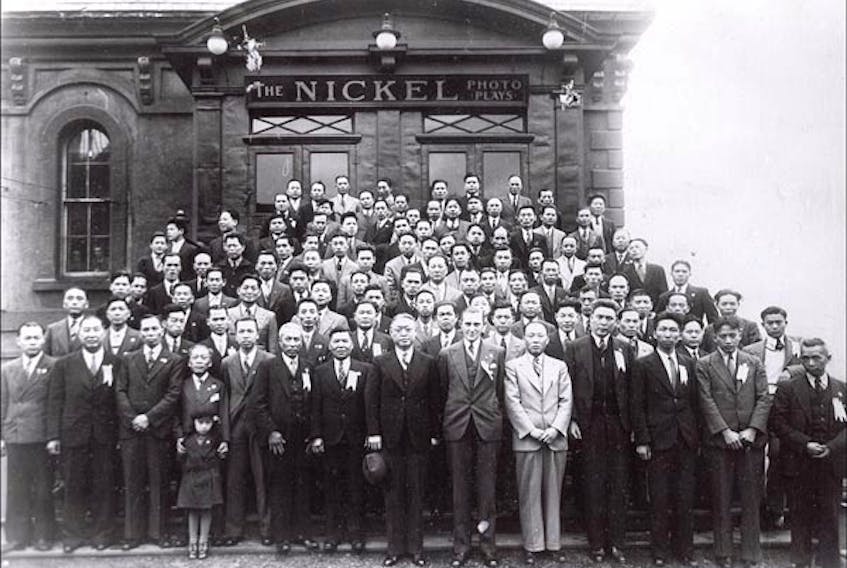The Chinese New Year is being celebrated worldwide this week, as Feb. 5 marked the beginning of the Spring Festival, continuing until Feb. 19.
While many celebrated the Year of the Pig with feasts, fireworks and family fun, a crowd at The Rooms was commemorating a very different Chinese heritage event: the elimination of the Chinese head tax.
The son of a Chinese immigrant, Chinese-Canadian Gordon Jin, hosted “In Search of Gold Mountain” at The Rooms on Feb. 6 as part of the Engaging Evenings series.
Dabbling in geography, Canadian history, Newfoundland and Labrador history, and family history, Jin’s well-rounded story is absolutely captivating.
It is the tale of one family’s journey to a new world, “in search of gold mountain” – the English translation of a Chinese saying that refers to North America as the land of opportunity.
Jin’s father immigrated in 1931, travelling to Canada from his home province of Guangdong in search of new and better opportunities.
The Canadian Pacific Railroad was one such opportunity. Though foreign workers were paid much less than their white coworkers, they could make one dollar a day, compared to the seven cents a day they would earn in their home country.
This massive project – as well as available farmland, the gold rush and more, – inspired many Chinese to immigrant to the great white north, but the country wasn’t as great as anticipated.
In 1885, the Chinese Immigration Act was imposed. Each Chinese immigrant would have to pay a “head tax” – $50 — to enter the country. The amount rose to $500 by 1903.
Jin’s father immigrated at just 16 years old in 1931. He had to pay a $300 head tax in Newfoundland. Jin’s mother arrived in the country in 1955, 24 years after her husband. A few relatives arrived during that timeframe as well.
Jin did not find out about the expensive, racially motivated injustice of the Chinese head tax until after his father’s death.
Recalling his childhood in St. John’s, Jin spoke of his parents with adoration, noting the hardships they endured – racial profiling, discrimination, bullying and more – to create a new life in Canada. This was, he surmises, to provide their children with a better quality of life – access to education, and escape from a life of hard labour.
More than $23 million was collected from approximately 80,000 Chinese immigrants by the time the head tax was abolished in 1923, Jin explained. This would lead to the creation of the Chinese Exclusion Act, later repealed in 1947, as attitudes changed throughout the 1940s. The final elements of the discriminatory act were repealed by Pierre Trudeau’s government in 1967.
In 2006, the Canadian government formally apologized to Chinese-Canadians in a parliamentary address. By that time, only about 20 Chinese-Canadian head tax payers were alive to claim their $20,000 compensation.
Both of Jin’s parents died years before the apology was made.
This dark period of Canadian history can hardly be forgiven, and thanks to activists like Gordon Jin, it will never be forgotten.









